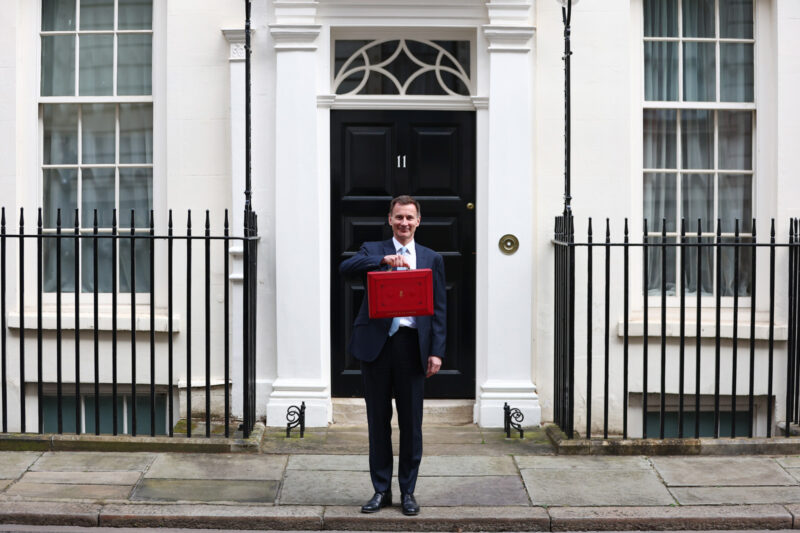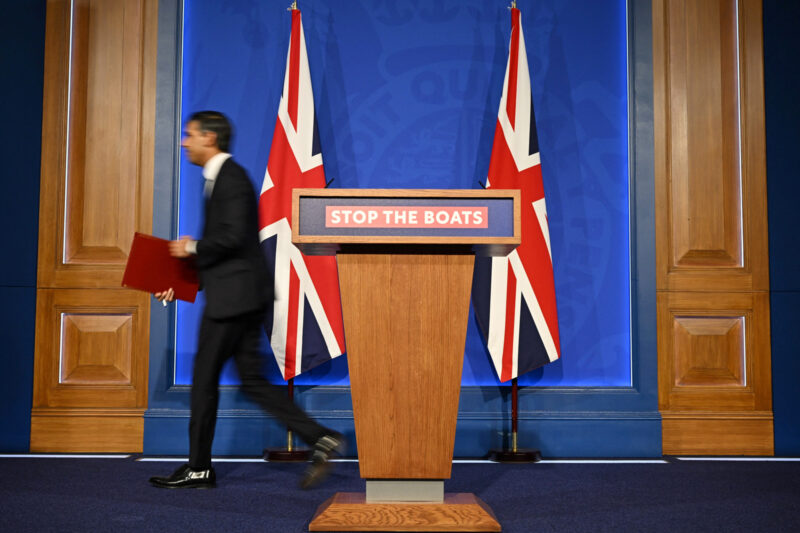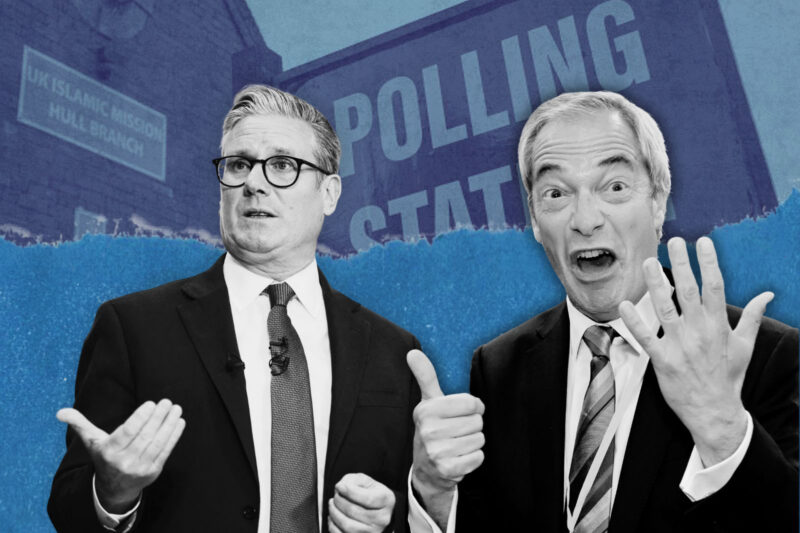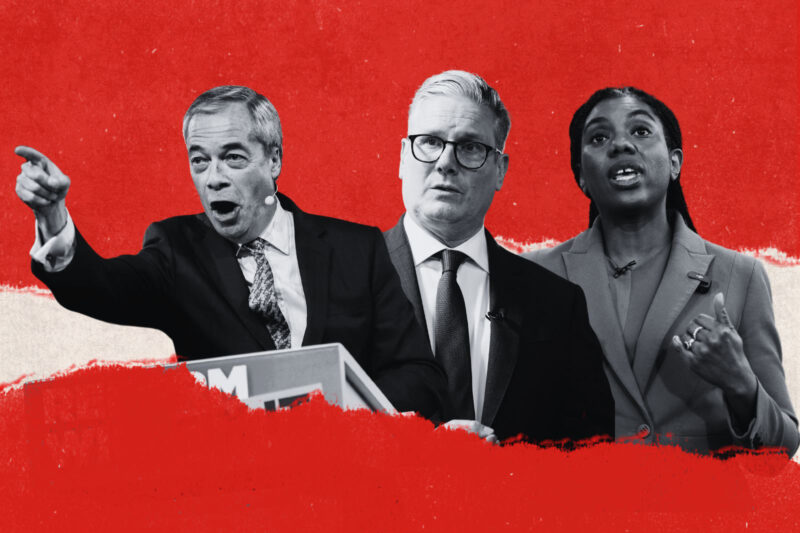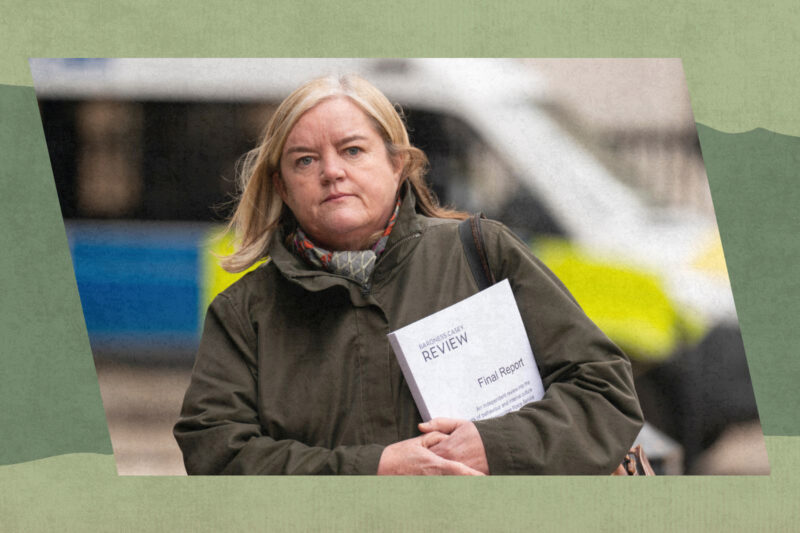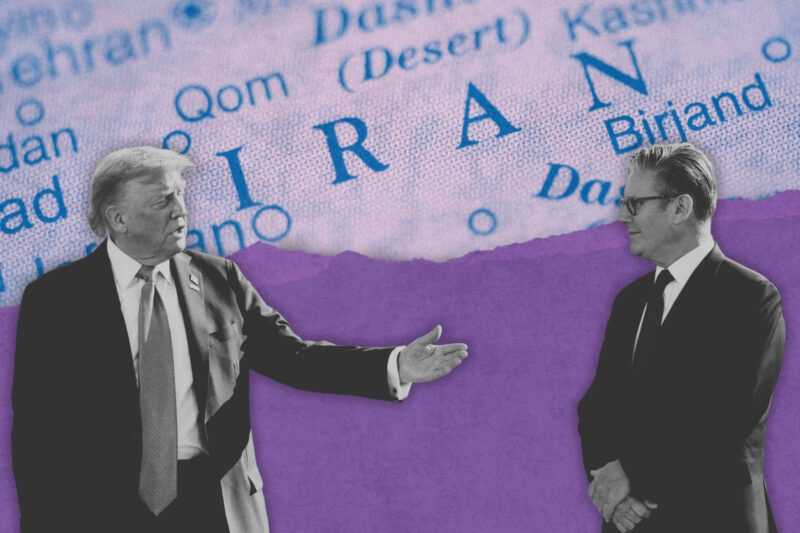A series of gaffes and more trouble ahead for Rishi Sunak
Recent gaffes and two important byelections could be disastrous for the prime minister — but Labour isn’t guaranteed success either
–
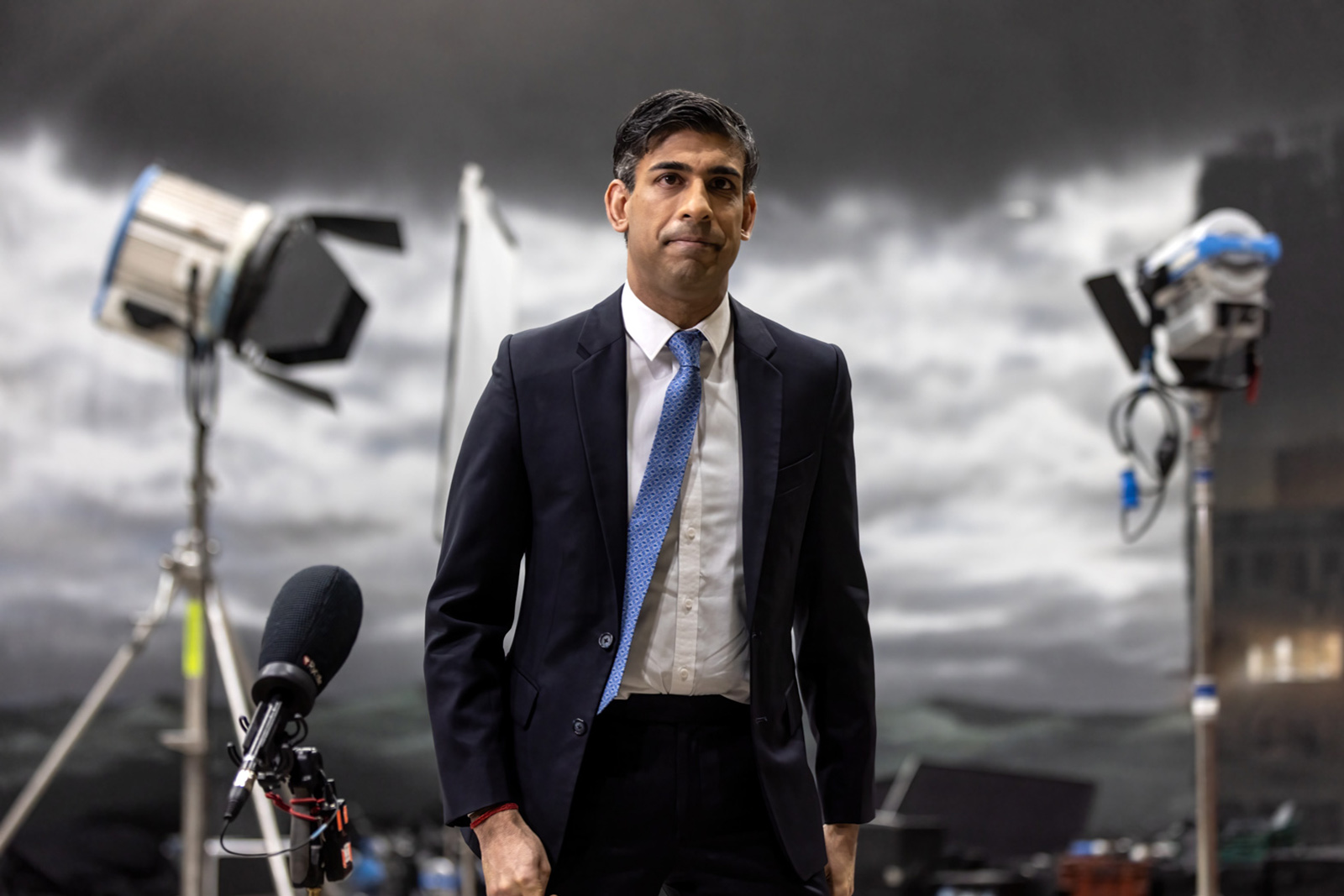
It is rare that Rishi Sunak is presented with an open goal, but last week he found himself in such a position, thanks to a major Labour policy U-turn. The decision by Sir Keir Starmer to scrap the party’s long-standing £28bn green energy pledge meant that the prime minister was handed an opportunity to take an easy win, but instead of firing the ball into the back of the net, he tripped over his own feet and hit the floor face first.
Instead of scoring valuable points against the opposition, Sunak had one of his worst weeks since he moved into Downing Street in October 2022. It began with a splinter group of hardline Tory MPs, spearheaded by his predecessor Liz Truss, launching PopCon, a rightwing faction that seeks to galvanise Britain’s “secret Conservative forces”.
When I covered PopCon’s launch event in the Emmanuel Centre, central London, it was clear that most of the attendees were not Sunak’s biggest fans. Asked whether the group undermined the prime minister in any way, Sir Jacob Rees-Mogg was adamant it would not. However, it certainly points to Conservative disunity and has the potential to cause headaches that Sunak could do without in an election year.
Sunak’s week was further derailed by his highly publicised interview with Piers Morgan on Talk TV, during which the prime minister appeared to take an impromptu wager offered by his host. The two men shook hands agreeing to bet £1,000, with the proceeds going to a refugee charity, on whether or not the government would be able to make deportation flights to Rwanda take off before the UK election.
The broadcast was met with almost instant criticism. Labour accused Sunak of being out of touch while the SNP referred to his actions as “grotesque”. A Conservative MP told me they were stunned by the incident. Sunak attempted to row back the controversy the next day, saying he was taken by surprise during the interview, but the damage was done. It ended up being the big takeaway from the conversation, overshadowing any Conservative achievements he may have hoped to highlight.
With all polls suggesting that the Tories are lagging far behind Labour, senior Conservatives are acutely aware that the party can ill afford such public blunders. I was told last week that the mood inside Number 10 was grim as this was considered an important opportunity for Sunak to reset with only months until polling day.
As the week progressed, there appeared to be some respite for Sunak, with Starmer facing scrutiny over ditching the party’s green investment plan. While U-turns in an election year — especially when you are more than 20 points behind in the polls — should be a gift, Sunak seemed to stumble again. During the weekly PMQs, he made a joke about Labour’s position on trans people while the mother of murdered transgender teenager Brianna Ghey sat in the public gallery. Starmer was clearly outraged, while Ghey’s father said the joke was “degrading” and demanded an apology from the prime minister.
As the furore continued to dominate the news cycle, Sunak was unrepentant, saying that the jibe was aimed at Starmer’s changing position on “defining a woman”. His ministers backed him, with Kemi Badenoch, secretary of state for business and trade, saying it was shameful of the Labour leader to try to link Sunak’s comment to Ghey’s murder. A number of Tory MPs I spoke to thought the situation had been blown out of proportion, but such unforced errors must be a disappointment for Sunak who, unlike both Boris Johnson and Liz Truss, does not tend to be particularly gaffe prone.
Sunak clearly had a challenging week, but Starmer’s was not much better. The £28bn about-face on green energy may have been anticipated, but it still prompted heavy criticism for Labour. The front page of the Daily Mail went with “Can you believe a word Sir U-turn says?”, while the Guardian said scrapping the policy had caused “fury” within the party. Not exactly the type of press the leader of the opposition would want as he attempts to get into Number 10.
Then came a story that I broke exclusively for ITV News: a new Survation opinion poll, commissioned by the Labour Muslim Network, revealed that only 60% of British Muslims who backed Labour at the polls in 2019 are willing to do so at the next general election. That apparent drop in support has been widely attributed to the party’s handling of the situation in Gaza.
Although the findings are unlikely to have much of an impact on the party’s national standing, they do indicate that voters cannot be taken for granted and that there is much to be done in reaching out to minority communities ahead of the election.
For Sunak, this week looks set to hold more challenges, with parliamentary byelections in Kingswood and Wellingborough. If the Tories lose both seats, they will have broken their own record of byelection defeats in a single parliament. There’s also the release of Office for National Statistics data that will indicate whether the UK has entered a recession. A handful of MPs have already said they want Sunak gone. If there’s more bad news, those shouts will only grow louder.
Shehab Khan is an award-winning presenter and political correspondent for ITV News
 Newsletter
Newsletter


